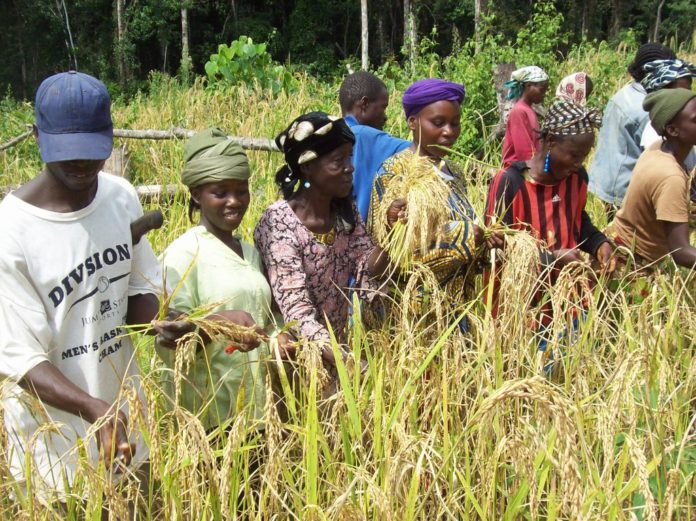The Liberia Institute of Statistics and Geo-Information Services (LISGIS) has released groundbreaking findings from the 2024 Liberia Agriculture Census, providing crucial insights into the nation’s agricultural landscape.
The census revealed that Liberia is home to 338,630 farming households, with Nimba County taking the lead, accounting for 21.4% of the total. Bong County followed with 16.7%, while Lofa County ranked third at 12.7%. These figures highlight Nimba’s pivotal role in Liberia’s agricultural economy.
Crop cultivation remains the backbone of Liberia’s agricultural sector, with 99% of households engaged in farming.
Rice and cassava emerged as the dominant crops, grown by 56.3% and 45.9% of households. Despite the sector’s prominence, the census identified significant challenges hindering productivity and sustainability.
A glaring issue is the underutilization of irrigation systems, with only 2.3% of agricultural households employing such technology.
The overwhelming dependence on rain-fed farming leaves farmers highly vulnerable to climate variability, underscoring the urgent need for investments in irrigation infrastructure to stabilize yields and boost productivity.
Education disparities among agricultural household heads also stand out as a critical barrier to progress. The census revealed that 64.5% of female households lack formal education, compared to 38.3% of their male counterparts.
This gap underscores the need for targeted education and training initiatives, particularly for women, to promote inclusivity and enhance productivity.
Livestock and poultry farming contribute significantly to rural livelihoods, with households raising over 444,000 chickens and 67,000 goats. However, the sector remains constrained by traditional farming practices.
The census found that 94.1% of agricultural households rely on cutlasses, while 87.2% use hand hoes, highlighting the urgent need for mechanization to improve efficiency and scale production.
These findings paint a compelling picture of Liberia’s agricultural sector, emphasizing the need for modernization and policy interventions. Strategic investments in irrigation, mechanization, and education are critical to addressing these challenges and ensuring food security.
Beyond agriculture, LISGIS provided updates on Liberia’s economic outlook, reporting a steady decline in inflation rates.
The Consumer Price Index (CPI) revealed that inflation fell from 10.5% in January 2024 to 6.2% in June, stabilizing at 7.2% by October.
This progress reflects the success of coordinated macroeconomic policies, including the Central Bank of Liberia’s liquidity management and prudent fiscal measures.
During a national press conference, the LISGIS Director General lauded the institution’s capacity-building achievements.
Over 24 staff members have pursued advanced degrees in Geographic Information Systems (GIS) and Data Science, while 30 others have completed specialized training programs.
These efforts are geared toward strengthening LISGIS’s capacity to meet the country’s statistical and developmental needs.






















